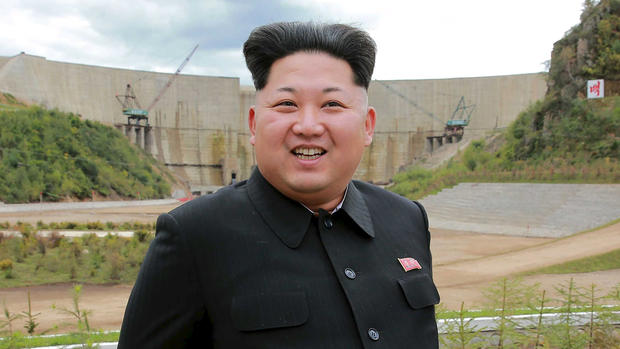N. Korea says it's making atomic bomb fuel again
SEOUL, South Korea -- A day after threatening rocket launches, North Korea declared Tuesday that it has revamped and restarted all its atomic bomb fuel production plants.
The back-to-back announcements, which many outside analysts consider threats designed to spur talks with the United States that could eventually provide impoverished North Korea with concessions, will push Pyongyang further toward a standoff with Washington and its allies.
The North said in its state media that its plutonium and highly enriched uranium facilities at the main Nyongbyon nuclear complex had been "rearranged, changed or readjusted and they started normal operation."
- Koreas agree to hold talks on reuniting families divided by war
- North and South Korea reach pact to ease tensions
- Unusual troop movements reported in North Korea
On Monday, Pyongyang warned that it is ready to launch "satellites" aboard long-range rockets that the West considers banned long-range missiles meant to eventually threaten America's mainland with atomic bombs. CBS News correspondent Seth Doane reports that the satellite launch could be timed to a major holiday in North Korea next month - the anniversary of the ruling worker's party.
The North's National Aerospace Development Administration director said scientists were pushing forward on a final development phase for a new earth observation satellite for weather forecasts.
"Space development for peaceful purposes is a sovereign state's legitimate right ... and the people of (North Korea) are fully determined to exercise this right no matter what others may say about it," the director told Pyongyang's official Korean Central News Agency. The world will "clearly see a series of satellites soaring into the sky at times and locations determined" by the Workers' Party.
South Korea's Defense Ministry said Tuesday that the firing a long-range missile would represent a "serious" violation of U.N. resolutions, but added it had not detected any signs indicating North Korea was preparing such a launch.
North Korea has spent decades trying to perfect a multistage, long-range rocket. After several failures, it put its first satellite into space with a long-range rocket launched in late 2012. The U.N. said it was a banned test of ballistic missile technology and imposed sanctions. Experts say that ballistic missiles and rockets in satellite launches share similar bodies, engines and other technology.
An angry North Korea then conducted its third nuclear test in February 2013, inviting further international condemnation and sanctions.
Washington sees North Korea's pursuit of nuclear weapons and ballistic missiles as a threat to world security and to its Asian allies, Japan and South Korea.
The North's announcement Monday also raised doubts about recent signs of easing animosities between the rival Koreas, which have agreed to hold reunions next month of families separated by war. The two Koreas previously threatened each other with war in August in the wake of mine explosions blamed on Pyongyang that maimed two South Korean soldiers earlier in that month.
The Korean Peninsula remains in a technical state of war since the 1950-53 Korean War ended with an armistice, not a peace treaty. About 28,500 U.S. troops are stationed in South Korea as deterrence against potential aggression from North Korea.
